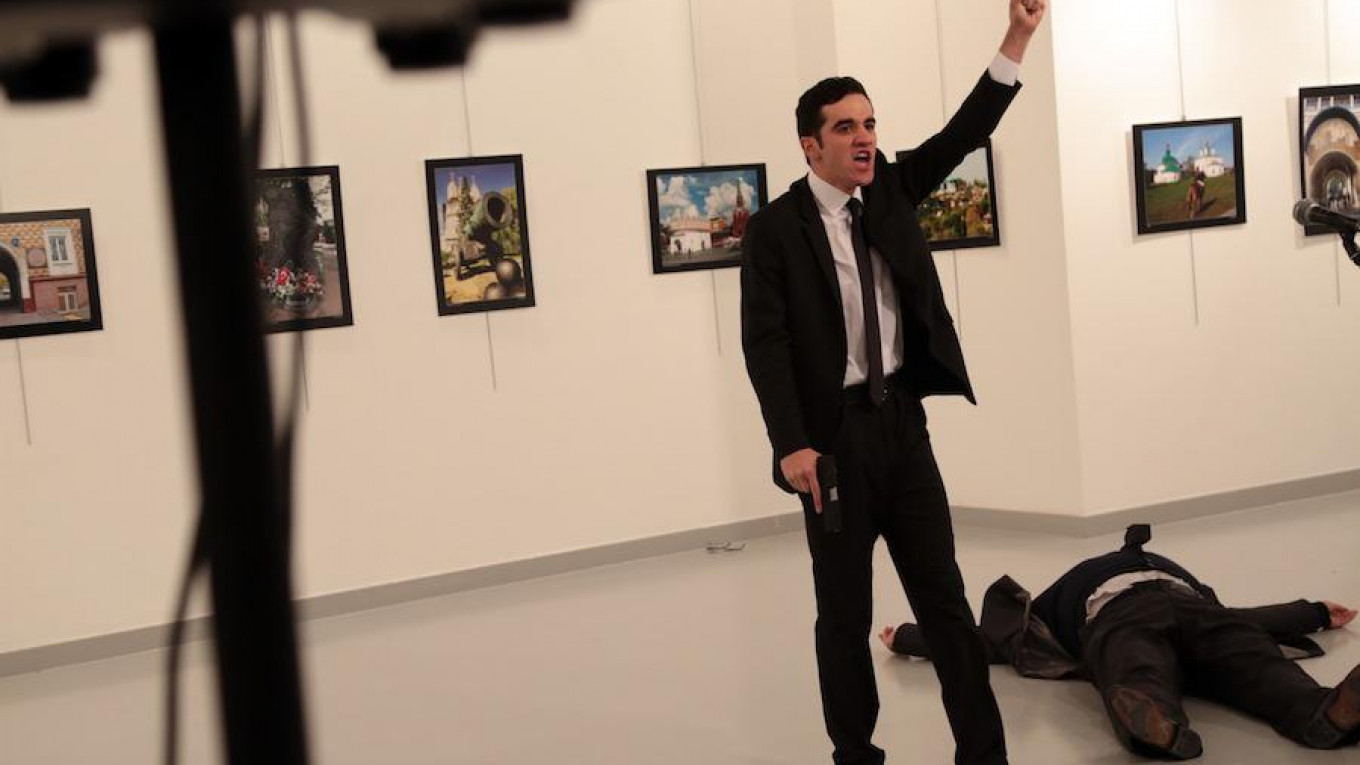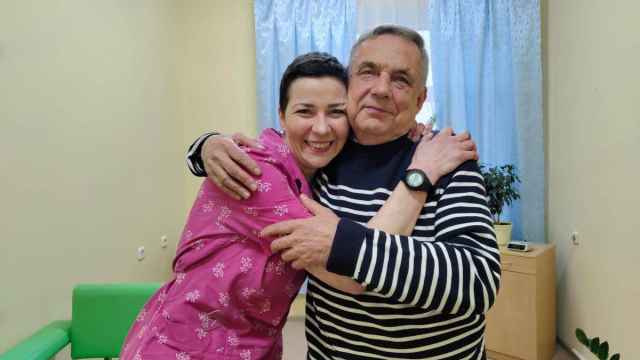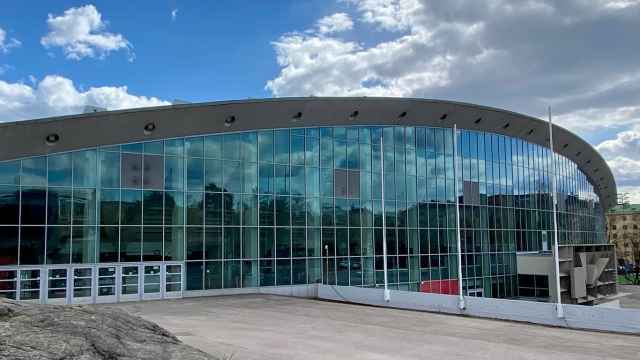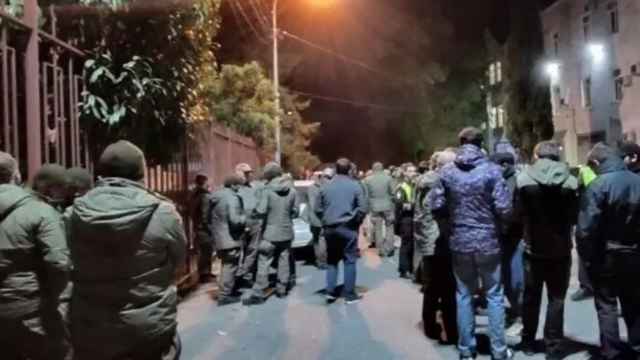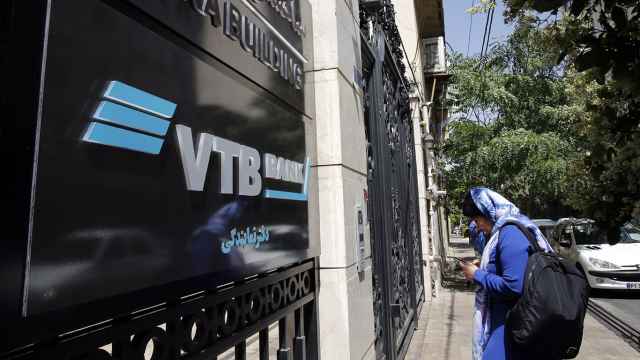Russia’s ambassador to Turkey, Andrei Karlov, was assassinated on Monday, while attending an art exhibition in the Turkish capital of Ankara. The Russian Foreign Ministry has confirmed the diplomat's death.
The shooter, who is believed to have been a radical Islamist, was then killed by special forces, who quickly raided the museum. According to CNN Türk, several other individuals — as many as three people— were also injured in the attack.
Turkish President Erdoğan has already telephoned President Putin directly and informed him about the attack on Ambassador Karlov.
Regional expert Orkhan Dzhemal told The Moscow Times that he believes the attacker most likely belonged to the Al-Nusra Front terrorist organization, which has been banned in Russia. Dzhemal says the group is weaker now in Turkey than it was a few years ago, but it remains strong enough to carry out an act like this.
Andrey Chuprygin, a professor of world economy and politics at Moscow's Higher School of Economics, told The Moscow Times that the attack is possibly aimed at both Turkey and Russia, in response to the Turkish establishment's tightening ties with the Kremlin. “This attack can hurt their image,” Chuprygin says. “It makes sense, because Aleppo has been taken, also, thanks to Ankara’s commitment. Turks agreed to stop supporting eastern Aleppo in the last assault.”
The assassination comes one day before Turkish Foreign Minister Mevlüt Çavuşoğlu planned to visit Moscow, to discuss cooperation on the war in Syria with Russian and Iranian officials. That meeting is still scheduled to go ahead, Turkish officials told the Russian news agency TASS.
In video footage shared on social media, several gunshots rang out, and Karlov collapsed to the ground, apparently killed instantly. He was shot as he addressed a crowd gathered for the opening of the “Russia Through a Turk's Eyes” photo exhibition.
The mayor of Ankara has reportedly confirmed that the attacker was a Turkish policeman. According to claims on social media, he was 22 years old, and screamed “Allah Akhbar!” after opening fire. He also shouted about the assault on Aleppo in Syria.
Local news outlets in Turkey claimed the assailant was involved in FETO, an organization run by Fethullah Gulen, who lives in exile in the United States. FETO is banned as a terrorist organization in Turkey, where journalists say the assailant was fired from Turkish police, following the unsuccessful coup attempt in Turkey on July 15, earlier this year.
Outside the art gallery, first responders rushed to the scene.
All Monday, condolences and condemnations have been pouring in from around the world.
Back in Russia, right-wing nationalist politician Vladimir Zhirinovsky has described the assassination as a false-flag operation by the West.
“The murder of our ambassador in Turkey is a provocation. The West fears the friendship between Russia and Turkey. My deepest sympathies to Andrei Karlov's friends and family.”
Karlov's assassination mars a reconciliation between the Turkish and Russian governments that began this summer, after Ankara made apologetic overtures to the Kremlin, months following the downing of a Russian aircraft by the Turkish Air Force in November 2015, along the country's border with Syria. The incident led to a sharp decline in bilateral ties, and Russia briefly imposed several sanctions on Turkey.
A Message from The Moscow Times:
Dear readers,
We are facing unprecedented challenges. Russia's Prosecutor General's Office has designated The Moscow Times as an "undesirable" organization, criminalizing our work and putting our staff at risk of prosecution. This follows our earlier unjust labeling as a "foreign agent."
These actions are direct attempts to silence independent journalism in Russia. The authorities claim our work "discredits the decisions of the Russian leadership." We see things differently: we strive to provide accurate, unbiased reporting on Russia.
We, the journalists of The Moscow Times, refuse to be silenced. But to continue our work, we need your help.
Your support, no matter how small, makes a world of difference. If you can, please support us monthly starting from just $2. It's quick to set up, and every contribution makes a significant impact.
By supporting The Moscow Times, you're defending open, independent journalism in the face of repression. Thank you for standing with us.
Remind me later.


